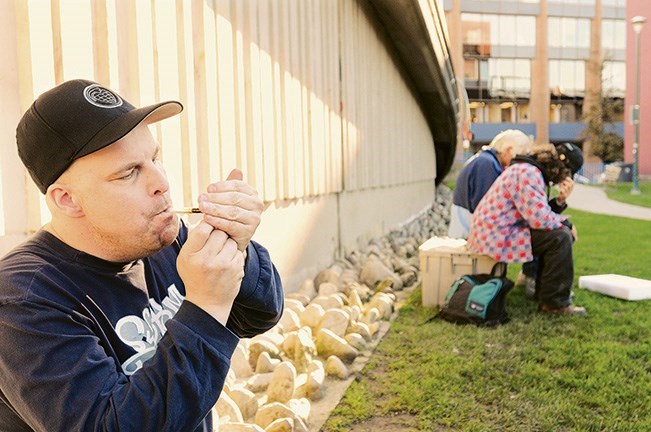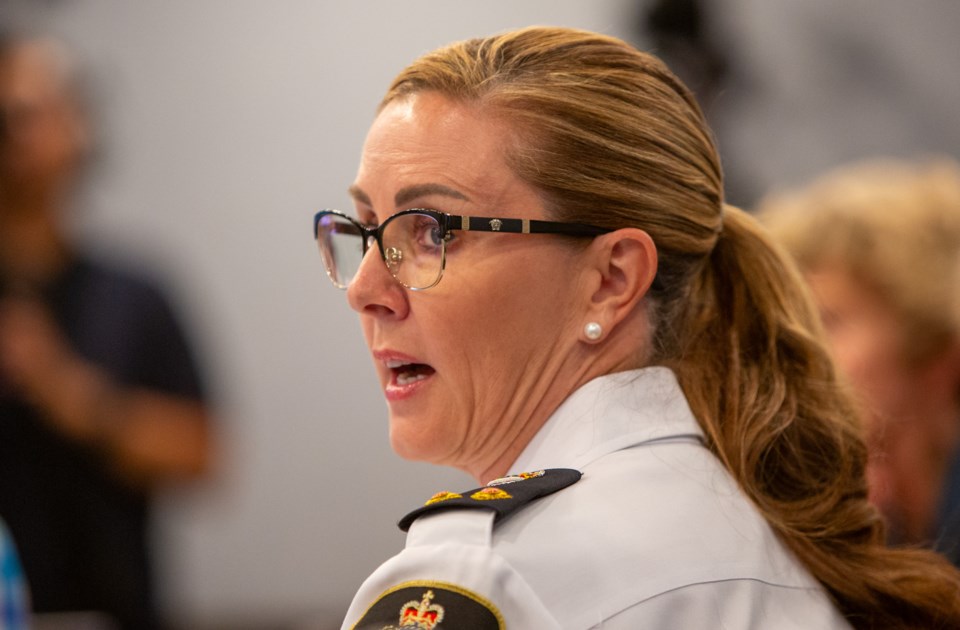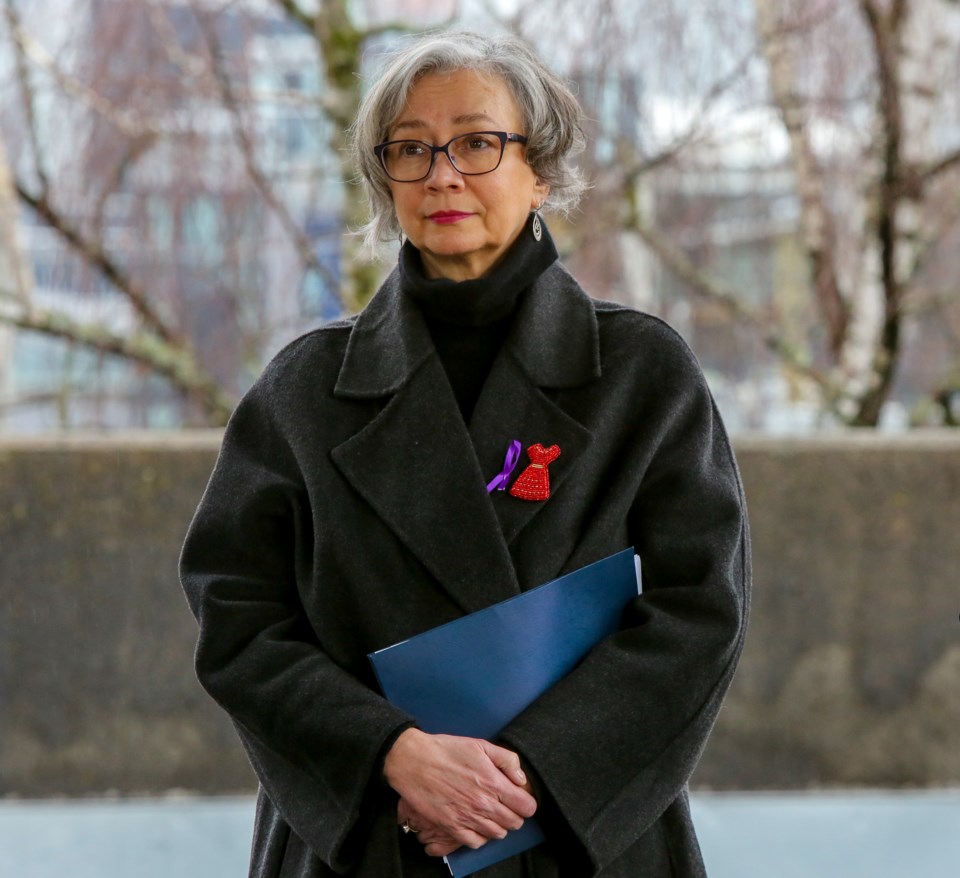The region’s mayors are scheduled to receive a presentation Wednesday from B.C.’s minister of mental health and addictions regarding the issue of drug use in public spaces such as parks and playgrounds.
Jennifer Whiteside’s meeting with the Metro Vancouver Regional District mayors’ committee in Burnaby comes almost seven months after the provincial government launched an experiment Jan. 31 to decriminalize drugs.
Since then, Port Coquitlam amended its bylaws to forbid the use of drugs such as fentanyl, cocaine, methamphetamine and MDMA in parks and public spaces. Some other cities in B.C., including Campbell River, have either adopted similar policy or raised the issue in council debate.
“We know that the use of substances in public spaces is a long-standing concern, and it did not begin with decriminalization,” said Whiteside in an email to Glacier Media.
“However, every community is experiencing the toxic drug crisis differently and we need to ensure everyone feels safe. That is why we have been engaging with municipalities and other stakeholders regarding legislation for our fall legislative session to address the use of illicit drugs in public spaces.”
'Balance municipal needs'
Whiteside, who will meet with the mayors as a group for the first time since appointed minister, didn’t elaborate whether the model established by Port Coquitlam would be considered or adopted across the province.
She said the Ministry of Public Safety and Solicitor General is currently considering a range of feedback received during the consultation process.
That information will inform development of legislation that “balances municipal needs in the context of the public health emergency with public health and the ongoing toxic drug crisis,” the minister said.
Added Whiteside: “We are committed to getting this right. This means being responsive as issues arise and adapting policies to address them the best we can. We’ll have more details about this work in the coming weeks.”

1,455 drug deaths
The province’s decriminalization law, which applies to people 18 and older, is the result of a successful push from the B.C. government to have Health Canada grant the province an exemption from the Controlled Drugs and Substances Act.
The exemption began Jan. 31 and expires Jan. 31, 2026.
People in possession of 2.5 grams or less of fentanyl, heroin, morphine, crack and powder cocaine, methamphetamine or MDMA cannot be arrested or have their drugs seized.
The B.C. government is on record saying decriminalization is a critical step and another tool in the fight against the toxic drug crisis, which killed at least 12,739 people since a public health emergency was first declared in April 2016.
This year alone, between January and July, 1,455 people died of a drug overdose, according to recent data from the BC Coroners Service.

'Spirit of decriminalization'
In Vancouver, which recorded 382 drug deaths this year, the issue of public drugs was raised at a police board meeting in July.
A resident complained via a letter that police ticket people for drinking alcohol or smoking marijuana on Third Beach, but will not take similar action on drug users on East Hastings Street.
The police board dismissed the complaint, citing the new law.
During discussion at the meeting, Deputy Chief Fiona Wilson said police respect “the spirit of decriminalization” and believe that people should not be criminalized because they use drugs.
Instead, Wilson said, they should be assisted “on pathways to health.”
“However, we also recognize that the matter of public consumption is one of great concern to our community and are doing everything we can to try and address that,” she said.
“Just to be clear, we don't think there's necessarily been a dramatic increase in public consumption. But what has changed is police no longer have the authority to ask someone to move along in the event that they're using illicit drugs in problematic circumstances, like, for example, on a playground.”
Housing, safe supply of drugs
Garth Mullins, an organizer with the Vancouver Area Network of Drug Users and host of Crackdown Podcast, said the solution to keeping people from using drugs in public spaces is housing and safe supply.
Mullins said he doesn’t want to see people using drugs in playgrounds, either.
“As drug users, most of us want to be good neighbours,” he said. “And I think that when people are using outside — particularly in places like that — it shows that we are having a housing crisis in the city.”
Added Mullins: “Occasionally, yeah, you will find people smoking rock outside or smoking a joint outside because it's summer, and it's nice. But for the most part, people do drugs in their houses, whether it's legal drugs or illegal drugs, and that's where you find people overdosed and dead.”
BC Coroners Service data has been consistent in showing more people die of an overdose while indoors; a report released Aug. 29 shows only 19 per cent of drug deaths in the province occurred outside.
Mullins, who is in his 50s, said in the 1990s during the last overdose crisis, he would purposely use drugs in the streets or leave his apartment after using drugs. He did that, he said, so he could get someone to call 911, if he overdosed.
Addressing Wilson’s statement about police not seeing an increase in public drug use, Mullins said he worries that the provincial government will seek to amend the decriminalization law based on politicians’ “feelings” rather than evidence.
He pointed to the City of Vancouver-led clearing of people living in tents on East Hastings Street in elaborating on his concern.
“You just can’t pass laws to make people do stuff,” he said. “If they’ve got nowhere to go, then you're just going to have more public drug use.”
'Patchwork of municipal approaches'
Vancouver city council, which is led by Mayor Ken Sim and ABC Vancouver, has not raised the issue of public drug use for debate since decriminalization was enacted in January — and are not likely to do so.
Sandra Singh, the city’s general manager of arts, culture and community services, said staff would prefer to see a provincial framework regarding any amendments to the decriminalization law, rather than “a patchwork of municipal approaches.”
“It's just clearer for everyone if there is a consistent approach,” Singh said.



